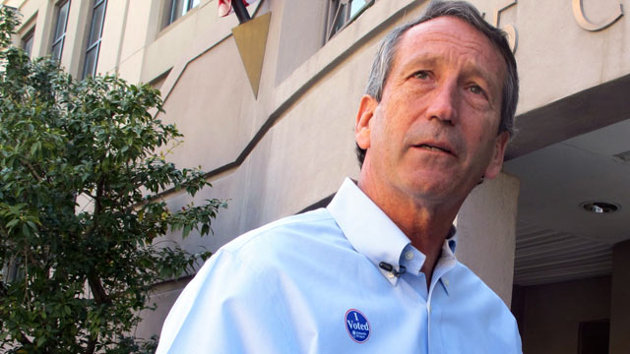In recent weeks most of Washington DC has been focused on the return to politics of former South Carolina Governor Mark Sanford, a republican. Sanford, 52, is trying to resurrect a promising political career that seemed to have faded in 2009 after he revealed an extramarital affair with a woman in Argentina. However, the episode wasn’t that uneventful. The affair was revealed after the former governor was missing from the governor’s mansion for several days in 2009. At the time, his office claimed that he was hiking on the Appalachian Trail, a popular hiking range that runs from Georgia to Maine. Later, it was revealed that he was actually visiting his mistress in Argentina. At the time, Sanford said that the Argentinian woman was his “soul mate”. Soon after, he divorced his first wife, Jenny, and is currently engaged to his former girlfriend from Argentina.
Fast forward to 2013 and the congressional seat of the first district of South Carolina is vacant. The seat is vacant because current South Carolina Governor, Nikki Haley, appointed Rep. Tim Scott to the senate seat vacated by Sen. Jim DeMint in January. Sen. DeMint left the senate seat in order to run the Heritage Foundation. Mark Sanford also held the seat from 1995 to 2001, before becoming governor.
Therefore, given this opportunity, Sanford ran an early campaign ad in which he talked about learning “how none of us go through life without mistakes” and his belief in a “God of second chances”. In the campaign he has repeatedly said, “The events of 2009 absolutely represent a failure on my part for which there were and always will be at some level, consequences. But that does not mean because you’ve had a failure in your personal life, that you cannot step back into life again.”
In the first race of the campaign on the Republican side, Mark Sanford easily gathered the most votes in a GOP Primary field of 15 other candidates. He won approximately 37 percent of the vote, not enough, though, to avoid a GOP runoff in a few weeks. A few weeks later, Sanford cruised to victory in the runoff against a former Charleston County Councilman Curtis Bostic. He won again with about 57 percent of the vote in the 1st district. Sanford used his past experience and his fiscal conservatism to rile up voters in a district where turnout was high and where voters are less social conservative.
Sanford, though, still faces a tough general election fight against the sister of political comedian Stephen Colbert. Elizabeth Colbert Busch is well funded and has high name recognition on the democratic ticket. She has an extensive career which includes her time working for Associated Maritime Industries, Inc. and the maritime industry.
With all of that having been said, how could this have happened? How can an obscure politician like Sanford suddenly reemerge after a bitter scandal three years ago, and cruise to victory in the Republican primaries? The answer largely rests on how the voters judge these politicians. According to The New York Times Magazine, which recently wrote about Representative Anthony Weiner’s reentry into politics after a scandal two years ago, there are specific questions voters ask. Voters tend to ask questions like has the politician learned from his/her mistakes? What was the scale of their personal embarrassment? Voters are also very forgiving and are inclined to give them a second chance. However, in an age of constant communication, the answer may be bigger.
GOP Strategist Alex Castellanos recently made a brilliant observation that caught my eye. He said that, “in the age of constant communications, our politics has devolved to the point that political rehab is now the norm”. He continued, “Scandal is not new, but what is different is that there is no distinction between public and private life….everything is public. Political leaders never take their jerseys off after the game. There is no ‘after the game’. Therefore, all the flaws and faults their private lives once sheltered must now be rehabbed in public view.”
In addition, Sanford is calculating that voters are going to forgive him. The scandal he experienced in 2009 has faded from the public consciousness, which has helped his rehabilitation plan. But the point Castellanos makes is very important because it reveals how politics has undergone dramatic change over the last few decades. In the last few decades, scandal-ridden politicians have had to repair their images in “private life”. For example, former Democratic Senator from North Carolina, John Edwards, was caught six years ago of covering up an extramarital affair. Since that controversy, Edwards has remained in private life and has rarely emerged from “private life”. Now, scandal ridden politicians repair their images in public and have higher expectations afterwards. Thus, since there is no distinction between public and private life in an age of constant communications, scandal-ridden politicians can repair their images quicker and emerge from scandals even stronger.




